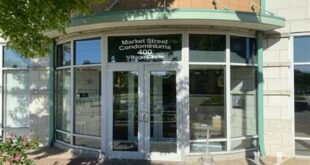Seeking professional help for addiction can be a daunting task. With so many different treatment centers available, it’s important to choose one that offers the services and amenities you need to achieve your recovery goals. Willow Springs Recovery is a leading addiction treatment center that provides a comprehensive range of services to help individuals overcome addiction and achieve lasting sobriety.
Editor’s Note: Understanding the “services offered by willow springs recovery” is a crucial step towards choosing the right addiction treatment center. This guide will provide you with all the information you need to know about Willow Springs Recovery’s services, so you can make an informed decision about your treatment.
Our team of addiction specialists has decades of experience in helping people overcome addiction. We offer a variety of evidence-based treatment modalities, including:
- Medical detox
- Residential treatment
- Intensive outpatient treatment
- Outpatient treatment
- Sober living
- Alumni program
In addition to our core treatment services, we also offer a number of specialized programs, such as:
- Trauma therapy
- Medication-assisted treatment
- Dual diagnosis treatment
- Family therapy
We understand that addiction is a complex disease, and we tailor our treatment plans to meet the individual needs of each client. Our goal is to provide our clients with the tools and support they need to achieve lasting recovery.
If you or someone you love is struggling with addiction, we encourage you to contact Willow Springs Recovery today. We offer a free, confidential assessment to help you determine if our services are right for you.
Services Offered by Willow Springs Recovery
Willow Springs Recovery offers a comprehensive range of services to help individuals overcome addiction and achieve lasting sobriety. These services include:
- Medical detox
- Residential treatment
- Intensive outpatient treatment
- Outpatient treatment
- Sober living
- Alumni program
- Trauma therapy
- Medication-assisted treatment
- Dual diagnosis treatment
- Family therapy
- Holistic therapies
- Aftercare planning
These services are designed to meet the individual needs of each client. Willow Springs Recovery understands that addiction is a complex disease, and they tailor their treatment plans to provide clients with the tools and support they need to achieve lasting recovery.
For example, Willow Springs Recovery’s medical detox program provides a safe and medically supervised environment for clients to withdraw from drugs and alcohol. The residential treatment program offers a structured and supportive environment where clients can focus on their recovery. The intensive outpatient and outpatient treatment programs provide flexibility for clients who need to continue working or attending school while they are in recovery. The sober living program provides a safe and supportive environment for clients who are transitioning back into independent living. And the alumni program provides ongoing support for clients who have completed treatment.
Willow Springs Recovery is committed to providing high-quality, evidence-based treatment for addiction. Their team of experienced addiction specialists is dedicated to helping clients achieve lasting recovery.
Medical detox
Medical detox is an important part of the addiction treatment process. It provides a safe and medically supervised environment for individuals to withdraw from drugs and alcohol. This can be a critical first step in recovery, as it allows individuals to stabilize their physical and mental health before they begin therapy.
Willow Springs Recovery offers a medical detox program that is tailored to the individual needs of each client. The program is staffed by a team of experienced medical professionals who are dedicated to providing compassionate and supportive care.
The medical detox program at Willow Springs Recovery typically lasts for 5-7 days. During this time, clients will be monitored around the clock and provided with medication to help manage withdrawal symptoms. Clients will also receive nutritional support and counseling to help them prepare for the next phase of treatment.
Medical detox is an important part of the addiction treatment process, and it can be a critical first step in recovery. If you or someone you love is struggling with addiction, please contact Willow Springs Recovery today. We offer a free, confidential assessment to help you determine if our services are right for you.
Key insights:
- Medical detox is an important part of the addiction treatment process.
- Medical detox provides a safe and medically supervised environment for individuals to withdraw from drugs and alcohol.
- Medical detox can be a critical first step in recovery.
- Willow Springs Recovery offers a medical detox program that is tailored to the individual needs of each client.
Residential treatment
Residential treatment is a type of addiction treatment that takes place in a live-in facility. This type of treatment is typically recommended for individuals who have a severe addiction and need a structured and supportive environment to recover.
-
Individual therapy
Individual therapy is a key component of residential treatment. During individual therapy, clients will work with a therapist to explore the underlying causes of their addiction and develop coping mechanisms for staying sober.
-
Group therapy
Group therapy is another important component of residential treatment. Group therapy provides clients with a safe and supportive environment to share their experiences and learn from others who are also struggling with addiction.
-
Medication-assisted treatment
Medication-assisted treatment (MAT) is a type of treatment that uses medication to help reduce cravings and withdrawal symptoms. MAT can be an effective way to help individuals stay sober during and after residential treatment.
-
Holistic therapies
Holistic therapies are a type of treatment that focuses on the whole person, rather than just the addiction. Holistic therapies can include things like yoga, meditation, and acupuncture.
Residential treatment can be a life-changing experience for individuals who are struggling with addiction. This type of treatment provides individuals with the opportunity to focus on their recovery in a safe and supportive environment. If you or someone you love is struggling with addiction, please contact Willow Springs Recovery today. We offer a free, confidential assessment to help you determine if residential treatment is right for you.
Intensive outpatient treatment
Intensive outpatient treatment (IOP) is a type of addiction treatment that takes place in a structured outpatient setting. This type of treatment is typically recommended for individuals who have a moderate to severe addiction and who need a higher level of support than traditional outpatient treatment can provide.
IOP programs typically involve attending group therapy sessions several times per week. These sessions are led by experienced addiction counselors and provide a safe and supportive environment for individuals to share their experiences and learn from others who are also struggling with addiction.
IOP programs also typically include individual therapy, medication-assisted treatment (MAT), and other holistic therapies. This comprehensive approach to treatment can help individuals address the underlying causes of their addiction and develop the skills they need to stay sober.
Research has shown that IOP is an effective treatment for addiction. One study found that individuals who participated in an IOP program were more likely to stay sober than those who participated in traditional outpatient treatment.
IOP can be a life-changing experience for individuals who are struggling with addiction. This type of treatment can provide individuals with the support and structure they need to achieve lasting recovery.
Key insights:
- IOP is a type of addiction treatment that takes place in a structured outpatient setting.
- IOP is typically recommended for individuals who have a moderate to severe addiction and who need a higher level of support than traditional outpatient treatment can provide.
- IOP programs typically involve attending group therapy sessions several times per week.
- IOP programs also typically include individual therapy, medication-assisted treatment (MAT), and other holistic therapies.
- Research has shown that IOP is an effective treatment for addiction.
| Characteristic | Intensive outpatient treatment |
|---|---|
| Setting | Outpatient |
| Intensity | Higher than traditional outpatient treatment |
| Frequency | Several times per week |
| Duration | Varies depending on the individual |
| Cost | Typically less expensive than residential treatment |
Outpatient treatment
Outpatient treatment is a type of addiction treatment that takes place in a non-residential setting. This type of treatment is typically recommended for individuals who have a mild to moderate addiction and who do not require the 24/7 care and support of a residential treatment program.
-
Individual therapy
Individual therapy is a key component of outpatient treatment. During individual therapy, clients will work with a therapist to explore the underlying causes of their addiction and develop coping mechanisms for staying sober.
-
Group therapy
Group therapy is another important component of outpatient treatment. Group therapy provides clients with a safe and supportive environment to share their experiences and learn from others who are also struggling with addiction.
-
Medication-assisted treatment
Medication-assisted treatment (MAT) is a type of treatment that uses medication to help reduce cravings and withdrawal symptoms. MAT can be an effective way to help individuals stay sober during and after outpatient treatment.
-
Holistic therapies
Holistic therapies are a type of treatment that focuses on the whole person, rather than just the addiction. Holistic therapies can include things like yoga, meditation, and acupuncture.
Outpatient treatment can be an effective treatment for addiction. This type of treatment provides individuals with the flexibility to continue working or attending school while they are in recovery. Outpatient treatment can also be less expensive than residential treatment.
If you or someone you love is struggling with addiction, please contact Willow Springs Recovery today. We offer a free, confidential assessment to help you determine if outpatient treatment is right for you.
Sober living
Sober living is a type of addiction treatment that provides a safe and supportive environment for individuals who are recovering from addiction. Sober living homes are typically staffed by recovering addicts who can provide guidance and support to residents. Sober living can be a valuable part of the addiction recovery process, as it can help individuals to transition back into independent living and maintain their sobriety.
-
Provides a safe and supportive environment
Sober living homes provide a safe and supportive environment for individuals who are recovering from addiction. This can be especially important for individuals who have a history of relapse, as it can provide them with a stable and structured environment in which to rebuild their lives.
-
Offers peer support
Sober living homes offer peer support, which can be a valuable asset in the recovery process. Individuals who are living in sober living homes can share their experiences and learn from each other, which can help them to stay motivated and on track in their recovery.
-
Helps individuals to develop life skills
Sober living homes can help individuals to develop life skills that can be essential for maintaining sobriety. These skills may include things like budgeting, cooking, and cleaning. Sober living homes can also provide individuals with opportunities to practice these skills in a safe and supportive environment.
-
Provides access to addiction treatment services
Sober living homes can provide individuals with access to addiction treatment services, such as counseling, therapy, and support groups. This can be important for individuals who need ongoing support in their recovery.
Sober living can be a valuable part of the addiction recovery process. It can provide individuals with a safe and supportive environment, offer peer support, help individuals to develop life skills, and provide access to addiction treatment services.
Alumni program
The alumni program at Willow Springs Recovery is a vital part of the services offered by the rehab center. It provides ongoing support for individuals who have completed treatment, helping them to maintain their sobriety and continue their recovery journey. The program offers a variety of services, including:
- Monthly support group meetings
- Quarterly social events
- Annual alumni retreat
- Access to a private online community
- Mentoring program
- Scholarship program
The alumni program is staffed by experienced addiction counselors who are dedicated to helping individuals achieve long-term recovery. The program is based on the belief that addiction is a chronic disease that requires ongoing support. The program provides individuals with the tools and resources they need to stay sober and live fulfilling lives.
The alumni program at Willow Springs Recovery is an essential part of the continuum of care offered by the rehab center. It provides individuals with the support they need to maintain their sobriety and continue their recovery journey.
| Service | Description |
|---|---|
| Monthly support group meetings | These meetings provide a safe and supportive environment for individuals to share their experiences and learn from others who are also in recovery. |
| Quarterly social events | These events provide an opportunity for individuals to connect with other alumni and build a network of sober friends. |
| Annual alumni retreat | This retreat is a time for individuals to reflect on their recovery journey and develop new skills for maintaining sobriety. |
| Access to a private online community | This online community provides individuals with a safe and supportive space to connect with other alumni and share their experiences. |
| Mentoring program | This program pairs individuals with experienced mentors who can provide guidance and support. |
| Scholarship program | This program provides financial assistance to individuals who are pursuing higher education or vocational training. |
Trauma therapy
Trauma therapy is an essential component of the services offered by Willow Springs Recovery. Trauma is a major contributing factor to addiction, and it is important to address the underlying trauma in order to achieve lasting recovery.
-
Understanding the connection between trauma and addiction
Trauma can lead to addiction as a way of coping with the emotional and psychological pain. People who have experienced trauma may turn to drugs or alcohol to numb their feelings or to escape from their memories.
-
Types of trauma therapy offered at Willow Springs Recovery
Willow Springs Recovery offers a variety of trauma therapy modalities, including:
- Eye Movement Desensitization and Reprocessing (EMDR)
- Trauma-Focused Cognitive Behavioral Therapy (TF-CBT)
- Somatic Experiencing
- Dialectical Behavior Therapy (DBT)
-
Benefits of trauma therapy
Trauma therapy can help individuals to:
- Process and heal from their traumatic experiences
- Develop coping mechanisms for dealing with triggers
- Reduce symptoms of PTSD and other trauma-related disorders
- Improve their overall mental health and well-being
-
How trauma therapy is integrated into treatment at Willow Springs Recovery
Trauma therapy is integrated into all aspects of treatment at Willow Springs Recovery. Individuals will participate in individual and group therapy sessions that are focused on addressing their trauma. They will also have access to a variety of holistic therapies, such as yoga, meditation, and acupuncture, which can help to reduce stress and promote healing.
Trauma therapy is an essential component of addiction treatment. It can help individuals to understand the connection between their trauma and their addiction, and it can provide them with the tools they need to heal from their trauma and achieve lasting recovery.
Medication-assisted treatment
Medication-assisted treatment (MAT) is a type of addiction treatment that uses medication to help reduce cravings and withdrawal symptoms. MAT can be an effective way to help individuals stay sober during and after treatment.
-
Reduces cravings and withdrawal symptoms
MAT can help to reduce cravings and withdrawal symptoms, which can make it easier for individuals to stay sober. Medications used in MAT include methadone, buprenorphine, and naltrexone.
-
Improves treatment outcomes
MAT has been shown to improve treatment outcomes for individuals with opioid addiction. Studies have shown that individuals who receive MAT are more likely to stay in treatment, achieve abstinence, and reduce their risk of relapse.
-
Reduces the risk of overdose
MAT can help to reduce the risk of overdose by reducing cravings and withdrawal symptoms. This is especially important for individuals who are at high risk of overdose, such as those who have a history of overdose or who are using fentanyl.
-
Is safe and effective
MAT is a safe and effective treatment for opioid addiction. Medications used in MAT have been approved by the FDA and have been shown to be safe and effective in clinical trials.
MAT is an important part of the services offered by Willow Springs Recovery. MAT can help individuals to achieve and maintain sobriety, and it can improve their overall quality of life.
Dual diagnosis treatment
Dual diagnosis treatment is an important component of the services offered by Willow Springs Recovery. Dual diagnosis refers to the co-occurrence of a mental health disorder and a substance use disorder. Individuals with dual diagnosis often have more severe symptoms and a higher risk of relapse than those with either disorder alone.
Willow Springs Recovery offers a comprehensive dual diagnosis treatment program that is tailored to the individual needs of each client. The program includes a combination of evidence-based therapies, such as:
- Medication-assisted treatment
- Cognitive-behavioral therapy
- Dialectical behavior therapy
- Trauma therapy
- Family therapy
The goal of dual diagnosis treatment is to address both the mental health disorder and the substance use disorder. This can help individuals to achieve and maintain sobriety, improve their mental health, and live more fulfilling lives.
Here are some examples of how dual diagnosis treatment can help individuals:
- Reduce symptoms of both the mental health disorder and the substance use disorder
- Improve overall functioning
- Increase motivation for recovery
- Reduce the risk of relapse
- Improve quality of life
Dual diagnosis treatment is an essential part of the services offered by Willow Springs Recovery. It can help individuals to achieve and maintain sobriety, improve their mental health, and live more fulfilling lives.
| Benefit | How it helps |
|---|---|
| Reduced symptoms | Treatment addresses both the mental health disorder and the substance use disorder, leading to a reduction in symptoms of both. |
| Improved functioning | Individuals can improve their overall functioning, including their ability to work, go to school, and maintain relationships. |
| Increased motivation | Treatment can help individuals to increase their motivation for recovery and to make lasting changes in their lives. |
| Reduced risk of relapse | Treatment can help individuals to reduce their risk of relapse by addressing the underlying causes of their addiction. |
| Improved quality of life | Treatment can help individuals to improve their quality of life by reducing symptoms, improving functioning, and increasing motivation for recovery. |
Family therapy
Family therapy is an important component of the services offered by Willow Springs Recovery. Addiction is a family disease, and it can have a devastating impact on everyone involved. Family therapy can help to repair the damage that has been done and to build stronger relationships between family members.
Family therapy is a type of therapy that involves the entire family. It is typically led by a therapist who is trained in addiction and family dynamics. The therapist will work with the family to identify the problems that are contributing to the addiction and to develop strategies for addressing them.
Family therapy can be helpful for families in a number of ways. It can help to:
- Improve communication between family members
- Resolve conflicts
- Set boundaries
- Develop coping mechanisms
- Build stronger relationships
Family therapy is an important part of the recovery process for individuals with addiction. It can help to repair the damage that has been done to the family and to build stronger relationships between family members.
Here are some real-life examples of how family therapy has helped families:
- One family was struggling to cope with their son’s addiction to heroin. The son had been in and out of treatment, but he always relapsed. The family was at their wit’s end. They didn’t know what to do or how to help their son.
- The family decided to seek out family therapy. The therapist helped the family to understand the addiction and how it was affecting their son. The therapist also helped the family to develop strategies for dealing with the addiction. The family began to attend support groups and to learn more about addiction.
- The son eventually went back into treatment and this time he was able to stay sober. The family credits family therapy with helping them to save their son’s life.
Family therapy is a valuable service that can help families to cope with addiction. It can help to repair the damage that has been done and to build stronger relationships between family members.
| Benefit | How it helps |
|---|---|
| Improved communication | Family therapy can help family members to communicate more openly and honestly with each other. This can help to resolve conflicts and to build stronger relationships. |
| Resolved conflicts | Family therapy can help family members to resolve conflicts in a healthy way. This can help to reduce stress and to improve the overall functioning of the family. |
| Set boundaries | Family therapy can help family members to set boundaries with each other. This can help to protect the individual in recovery from relapse and to improve the overall health of the family. |
| Develop coping mechanisms | Family therapy can help family members to develop coping mechanisms for dealing with addiction. This can help to reduce stress and to improve the overall functioning of the family. |
| Build stronger relationships | Family therapy can help family members to build stronger relationships with each other. This can help to improve the overall health of the family and to provide a supportive environment for the individual in recovery. |
Holistic therapies
Holistic therapies are an essential part of the services offered by Willow Springs Recovery. These therapies focus on treating the whole person, rather than just the addiction. This is important because addiction is a complex disease that affects the mind, body, and spirit. Holistic therapies can help to address all of these aspects of addiction and promote lasting recovery.
-
Mindfulness
Mindfulness is a practice that involves paying attention to the present moment without judgment. This can help individuals to reduce stress, improve focus, and increase self-awareness. Mindfulness-based therapies, such as meditation and yoga, have been shown to be effective in treating addiction.
-
Nutrition
Nutrition plays an important role in overall health and well-being. Eating a healthy diet can help to improve mood, energy levels, and sleep. Nutrition counseling can help individuals to make healthy choices and develop a meal plan that supports their recovery.
-
Exercise
Exercise is another important part of a healthy lifestyle. Exercise can help to reduce stress, improve mood, and boost energy levels. Exercise can also help to improve sleep quality and reduce cravings. Willow Springs Recovery offers a variety of exercise programs, including yoga, swimming, and hiking.
-
Acupuncture
Acupuncture is a traditional Chinese medicine practice that involves inserting thin needles into the skin at specific points on the body. Acupuncture has been shown to be effective in treating a variety of conditions, including addiction. Acupuncture can help to reduce stress, improve sleep, and reduce cravings.
These are just a few of the holistic therapies that are offered at Willow Springs Recovery. These therapies can help individuals to address the underlying causes of their addiction and achieve lasting recovery.
Aftercare planning
Aftercare planning is an essential part of the services offered by Willow Springs Recovery. Addiction is a chronic disease that requires ongoing care and support. Aftercare planning helps individuals to develop a plan for maintaining their sobriety after they leave treatment.
Aftercare planning typically begins during the treatment process. Individuals will work with their therapist to identify their risks for relapse and to develop strategies for avoiding relapse. They will also develop a plan for continuing their recovery after they leave treatment.
Aftercare planning may include a variety of services, such as:
- Outpatient therapy
- Sober living
- Support groups
- Medication-assisted treatment
- Vocational training
- Educational support
The goal of aftercare planning is to help individuals to maintain their sobriety and to achieve long-term recovery. Aftercare planning can help individuals to:
- Avoid relapse
- Develop a strong support system
- Learn coping mechanisms for dealing with stress and triggers
- Build a healthy and productive life
Aftercare planning is an important part of the addiction recovery process. It can help individuals to achieve long-term sobriety and to live a happy and fulfilling life.
Here are some real-life examples of how aftercare planning has helped individuals to maintain their sobriety:
- One individual was able to avoid relapse after leaving treatment by attending outpatient therapy and support groups. The individual also developed a strong support system of friends and family members who were supportive of their recovery.
- Another individual was able to maintain their sobriety after leaving treatment by moving into a sober living home. The sober living home provided a safe and supportive environment where the individual could focus on their recovery.
- A third individual was able to achieve long-term sobriety after leaving treatment by getting involved in vocational training. The vocational training gave the individual the skills and confidence they needed to find a job and support themselves.
These are just a few examples of how aftercare planning can help individuals to achieve long-term sobriety. Aftercare planning is an essential part of the addiction recovery process, and it can help individuals to live a happy and fulfilling life.
| Benefit | How it helps |
|---|---|
| Avoid relapse | Aftercare planning can help individuals to identify their risks for relapse and to develop strategies for avoiding relapse. |
| Develop a strong support system | Aftercare planning can help individuals to develop a strong support system of friends and family members who are supportive of their recovery. |
| Learn coping mechanisms for dealing with stress and triggers | Aftercare planning can help individuals to learn coping mechanisms for dealing with stress and triggers that could lead to relapse. |
| Build a healthy and productive life | Aftercare planning can help individuals to build a healthy and productive life by providing them with the skills and support they need to achieve their goals. |
Frequently Asked Questions about Services Offered by Willow Springs Recovery
Many individuals seeking addiction treatment have questions about the services offered by Willow Springs Recovery. Here are some frequently asked questions and their answers:
Question 1: What types of addiction treatment services does Willow Springs Recovery offer?
Willow Springs Recovery provides a comprehensive range of addiction treatment services, including medical detox, residential treatment, intensive outpatient treatment, outpatient treatment, sober living, and alumni program.
Question 2: What is the cost of addiction treatment at Willow Springs Recovery?
The cost of addiction treatment at Willow Springs Recovery varies depending on the level of care required. Please contact our admissions team for more information.
Question 3: Does Willow Springs Recovery offer payment plans?
Yes, Willow Springs Recovery offers flexible payment plans to make addiction treatment affordable for everyone.
Question 4: What is the success rate of addiction treatment at Willow Springs Recovery?
The success rate of addiction treatment at Willow Springs Recovery is high. Our evidence-based treatment methods and experienced staff have helped countless individuals achieve lasting sobriety.
Question 5: What is the difference between inpatient and outpatient addiction treatment?
Inpatient addiction treatment provides 24/7 care in a residential setting, while outpatient addiction treatment allows individuals to live at home while attending treatment sessions.
Question 6: How do I choose the right addiction treatment program for me?
Choosing the right addiction treatment program is an important decision. Our admissions team can help you assess your needs and recommend the best program for you.
If you or someone you love is struggling with addiction, please contact Willow Springs Recovery today. We offer a free, confidential assessment to help you determine if our services are right for you.
Summary: Willow Springs Recovery offers a comprehensive range of addiction treatment services to meet the needs of every individual. Our experienced staff and evidence-based treatment methods have helped countless individuals achieve lasting sobriety. If you or someone you love is struggling with addiction, please contact Willow Springs Recovery today.
Transition to the next article section: Addiction treatment is a complex and challenging process, but it is possible to achieve lasting sobriety. If you are struggling with addiction, please reach out for help. There are many resources available to help you on your journey to recovery.
Tips for Choosing the Right Addiction Treatment Services
Choosing the right addiction treatment services is an important decision. The following tips can help you make the best choice for yourself or your loved one.
Tip 1: Consider your needs.
Not all addiction treatment programs are created equal. Some programs are better suited for certain types of addiction, such as alcohol or drug addiction. Other programs are designed for people with co-occurring mental health disorders. Consider your individual needs when choosing a program.
Tip 2: Do your research.
Once you have identified a few potential programs, take the time to research each one. Read reviews, talk to people who have been through the program, and visit the facility if possible. This will help you get a better sense of what each program is like and whether it is a good fit for you.
Tip 3: Consider the cost.
Addiction treatment can be expensive. It is important to consider the cost of treatment when making your decision. Some programs offer payment plans or sliding scale fees to make treatment more affordable.
Tip 4: Look for a program that offers a variety of services.
Addiction is a complex disease that requires a comprehensive approach to treatment. Look for a program that offers a variety of services, such as medical detox, therapy, counseling, and support groups.
Tip 5: Find a program that is accredited.
Accreditation is a sign that a program meets certain standards of quality. Look for programs that are accredited by the Joint Commission or another reputable organization.
Tip 6: Trust your gut.
Ultimately, the best way to choose an addiction treatment program is to trust your gut. Visit the program and talk to the staff. See if you feel comfortable and if you think the program is a good fit for you.
Choosing the right addiction treatment program is an important first step on the road to recovery. By following these tips, you can increase your chances of finding a program that meets your needs and helps you achieve lasting sobriety.
Summary:
- Consider your needs.
- Do your research.
- Consider the cost.
- Look for a program that offers a variety of services.
- Find a program that is accredited.
- Trust your gut.
Transition to the article’s conclusion:
If you or someone you love is struggling with addiction, please reach out for help. There are many resources available to help you on your journey to recovery.
Conclusion
Addiction is a complex disease that requires professional treatment. Willow Springs Recovery offers a comprehensive range of addiction treatment services, including medical detox, residential treatment, intensive outpatient treatment, outpatient treatment, sober living, and alumni program.
Our experienced staff and evidence-based treatment methods have helped countless individuals achieve lasting sobriety. If you or someone you love is struggling with addiction, please contact Willow Springs Recovery today. We offer a free, confidential assessment to help you determine if our services are right for you.
Together, we can overcome addiction and achieve lasting recovery.







